By Tracey Howerton
Special to NKyTribune
Have you ever written a letter to the President of the United States? Dr. Benjamin Franklin Stevenson of Boone (and later Kenton) counties has. In December 1864, Dr. B. F. Stevenson found himself compelled to write a letter to US President, and fellow Kentuckian, Abraham Lincoln.
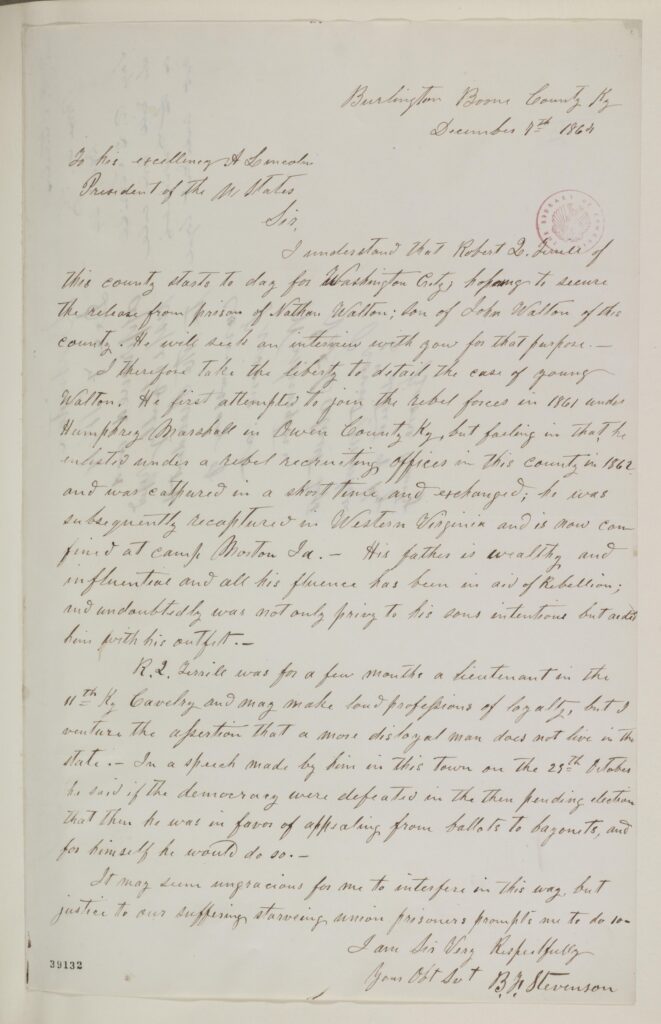
What was Stevenson’s motivation?
Stevenson wanted to inform President Lincoln that he may be paid a visit soon. The visitor would be Robert Terrill of Boone County. Terrill was expected to visit the President to seek release of Nathan Walton, the son of John Walton.
The younger Walton, who, Stevenson wrote, “enlisted with rebel recruiting offices in this county [Boone] in 1862,” was twice captured, and at that point in the war, was being held in Indiana at the US Army prisoner of war camp, Camp Morton. Stevenson warned Lincoln that while Terrill may loudly profess his loyalty to the Union, this was merely a ruse, and not to be believed.
Stevenson apologized to Lincoln for interfering, but he felt he owed it to the soldiers he had served with, and whose suffering and starvation he had witnessed firsthand.
Dr. B. F. Stevenson (1812–1902) served as a Surgeon for the US Army’s 22nd Kentucky Infantry regiment beginning in January 1862. His war service carried him from the Northern Kentucky/Cincinnati region to many reaches of the southern United States, stretching from deep Eastern Kentucky to Louisiana in the southwest. He returned home to Boone County from New Orleans, Louisiana in early April 1864, after resigning and receiving an honorable discharge in February and March.
Stevenson was originally born in Mason County, near Maysville, in 1812. He would come of age in Georgetown, (KY), and later attend medical school at Transylvania University in Lexington. His marriage in 1843 to Ann Eliza Tousey (b. 1822), daughter of Erastus and Catherine Tousey of Burlington, would result in him settling in the county seat community, where he and Ann would live and raise a family for over twenty years.
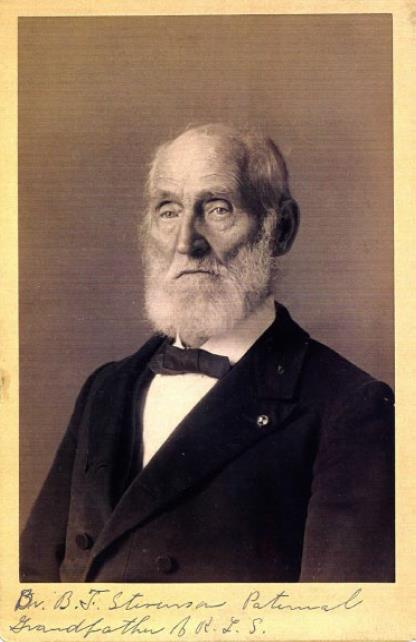
Though the four-years-long war came to an end officially in early April 1865, national and personal tragedies related to the war continued immediately and long after. Abraham Lincoln was assassinated on Good Friday, April 14,1865 and died the next morning. Just three months later, Stevenson’s beloved wife, Ann Eliza (Tousey) Stevenson, died in July 1865, after an extended illness that initially arose while her husband was away at war. Ann was laid to rest at the Tousey family plot in the (now Old) Burlington Cemetery, on Bullittsville Road, just a short walk from the Tousey home, known today as the Tousey House Tavern. Ann’s father, Erastus Tousey, had passed just two and a half years prior, also from an extended illness, in January 1863.
Stevenson’s letter to Lincoln was but one example of his writing proficiency. His proliferation of letters sent home to his wife Ann (nicknamed “Lida”) and others during the war were saved and compiled into a book published out of Cincinnati in 1884. The book was entitled, Letters from the Army. The dedication read, “to the memory of my buried wife . . . ,” and the preface was signed, “B. F. S., Visalia, Kenton County, June 11, 1884.” Stevenson and his daughters moved from Burlington to Visalia, Kenton County, in the postwar years. His book of letters was well-received, with a second edition printed in 1886.
The publication of his book was an extension of Stevenson’s active involvement with the Grand Army of the Republic (G.A.R.), the war veterans advocacy and social organization, from the mid-1860s to the 1890s. Stevenson attended many local G.A.R. chapter meetings and Decoration Day events in Covington and Cincinnati, as well as their annual national encampment meetings. It was Stevenson’s great honor to be elected as the organization’s Surgeon General at the August 1890 national meeting held in Boston, Massachusetts.
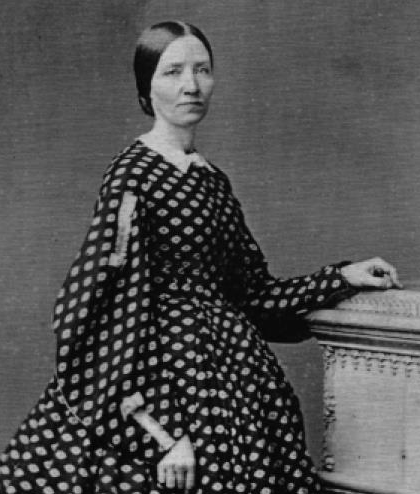
Like many men born in the still young American republic of the 1800s, Dr. B. F. Stevenson was named for a Founding Father. While it was common practice for boys to be named for presidents such as George Washington and Thomas Jefferson, many 19th century American parents also named their sons with the first and middle names of Benjamin Franklin, out of respect for the great statesman, thinker, and patriot.
This naming trend was cause for confusion during Stevenson’s lifetime and would present a challenge for future historical researchers. The man credited with founding the G.A.R. was Dr. Benjamin Franklin Stephenson (with a “ph”), from Illinois, who served as a surgeon with the 14th Illinois Infantry beginning in 1862. Kentucky’s Dr. B. F. Stevenson actually makes mention of some confusion between him and his comrade in at least one of his war letters to Ann. Years after the war, memorials and historical markers were erected for the Illinois Dr. B. F. Stephenson (1823–1871) in several places, including Washington, DC and Petersburg, Illinois, to recognize his role in creating the G.A.R.
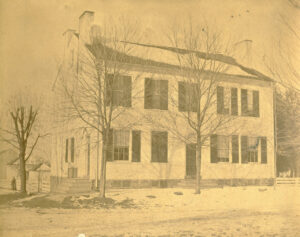
Fast forward some 150 years into the future, and Stevenson’s 1864 letter to Lincoln was made available to researchers far from the nation’s capital (known in Lincoln’s time as “Washington City”), thanks to the good work of the Library of Congress. America’s largest library, the Library of Congress was established and supported by two US Presidents, John Adams and Thomas Jefferson, in the early 1800s–1810s. Interested readers can access Stevenson’s original letter within the Abraham Lincoln Papers, all of which were digitized and made accessible to researchers anywhere in the world.
Northern Kentucky area residents and visitors are fortunate to have a place where it is easy to imagine these and many other historical events taking place. The Tousey House Tavern, having celebrated its 200th anniversary in 2022, continues its rich legacy into yet another century.
See also:
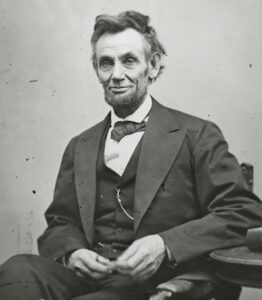
B. F. Stevenson’s letter to Lincoln, Abraham Lincoln Papers, Library of Congress
Tousey-Stevenson Family Collection, 1826-1997, Boone County Public Library
Tracey Howerton is the Local History Librarian at BCPL’s Main location in Burlington. She earned an MLIS, with an Archival Concentration, from the University of Wisconsin-Milwaukee, School of Information Studies. You can read her full-length research article on Dr. B. F. Stevenson in the December 2022 issue of Northern Kentucky Heritage magazine. She can be contacted at: thowerton@bcpl.org or 859-342-2665, x8150.
Paul A. Tenkotte, PhD is Editor of the “Our Rich History” weekly series and Professor of History at Northern Kentucky University (NKU). He can be contacted at tenkottep@nku.edu. Tenkotte also serves as Director of the ORVILLE Project (Ohio River Valley Innovation Library and Learning Engagement).








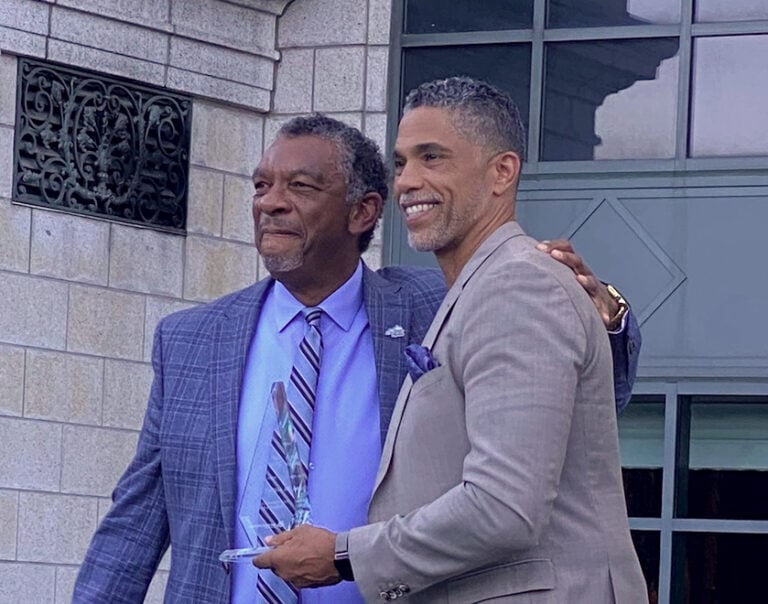
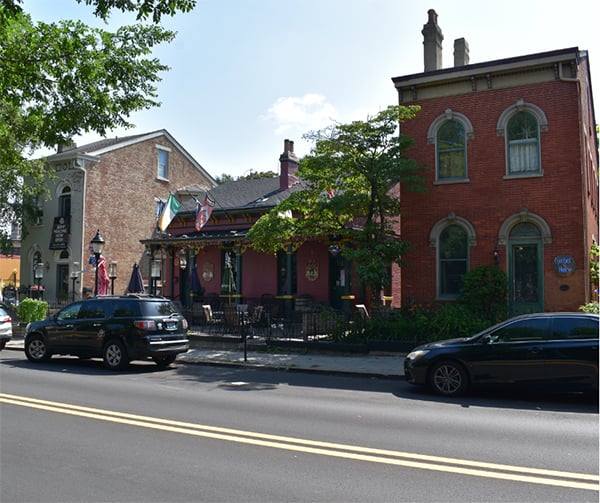
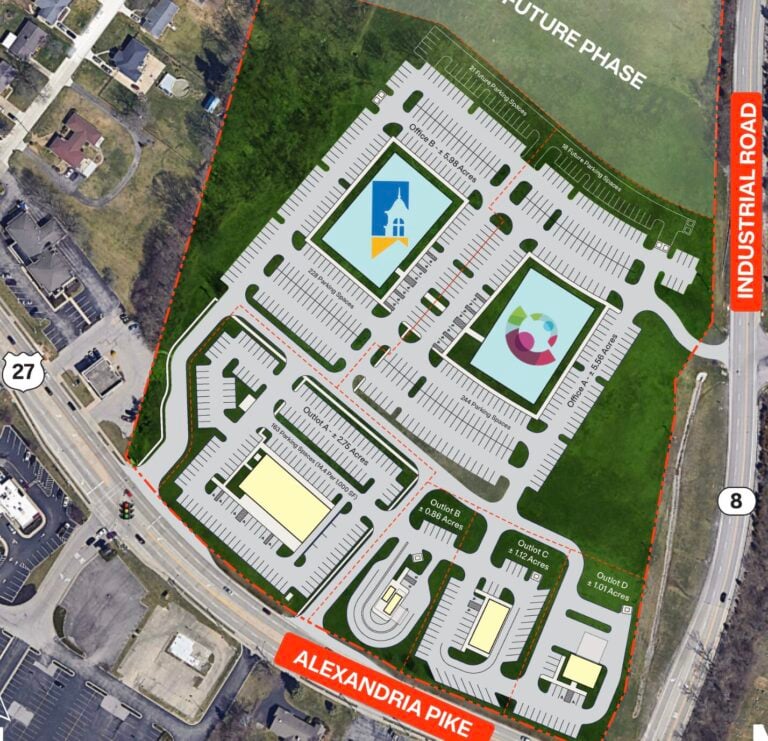

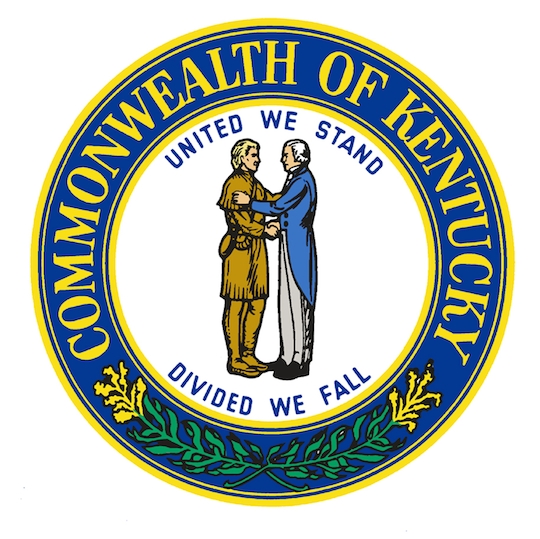


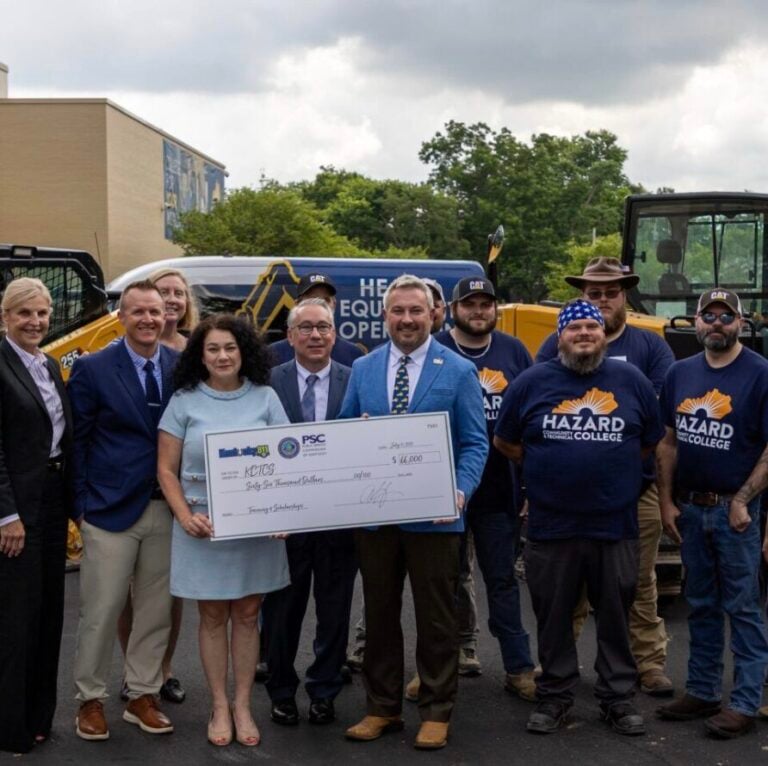
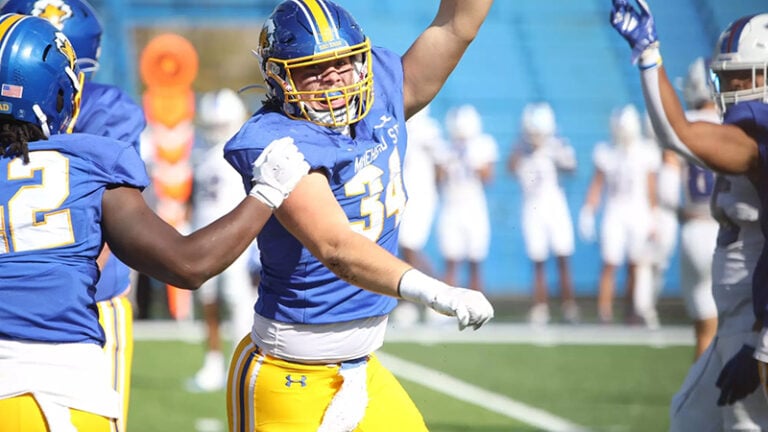
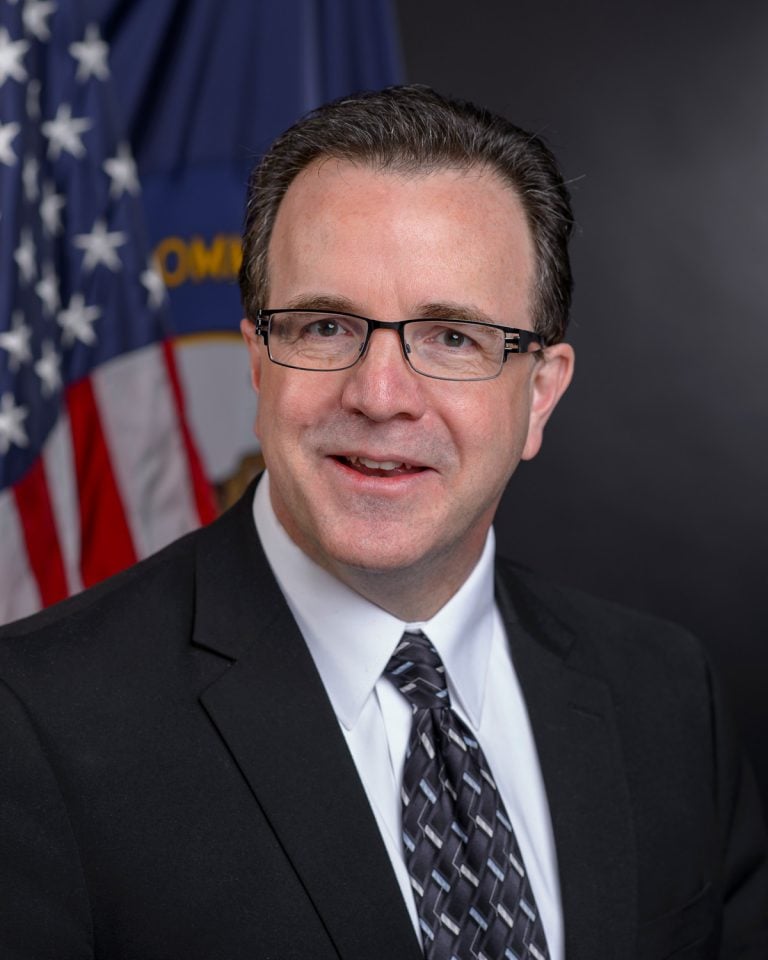
Great read! Thank you!